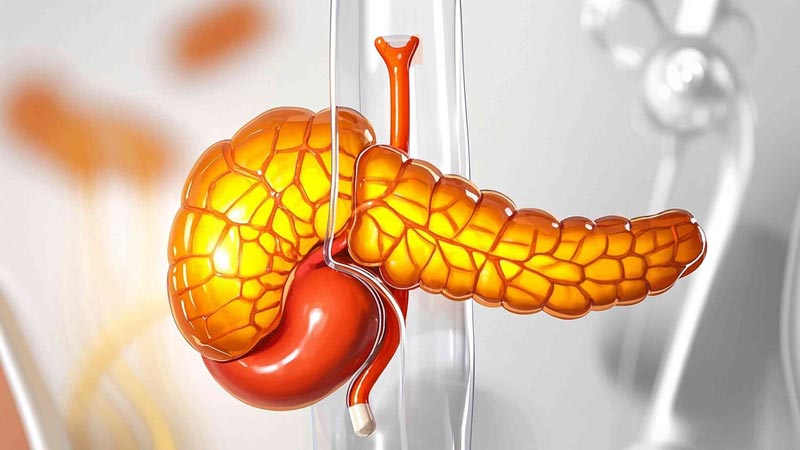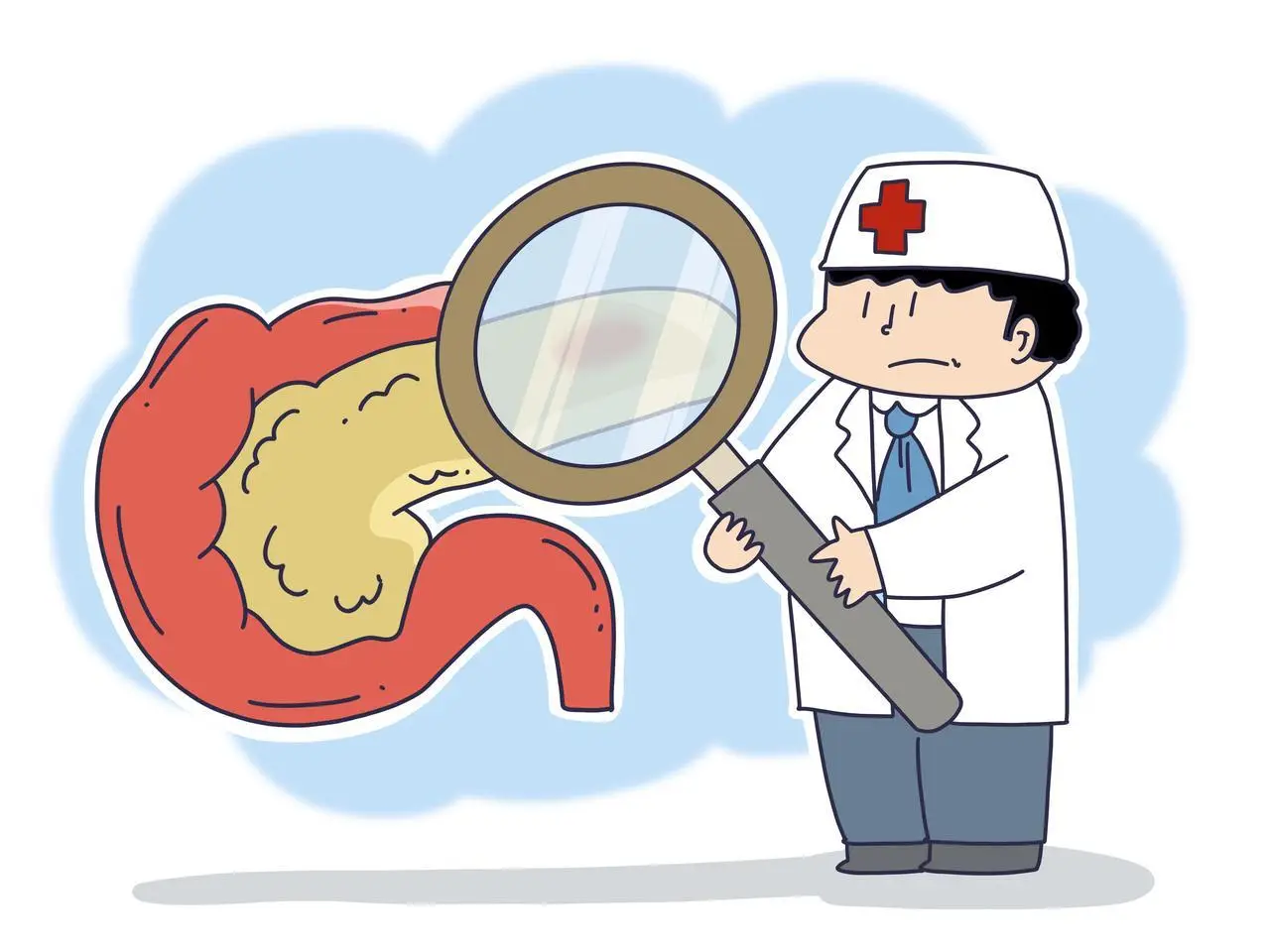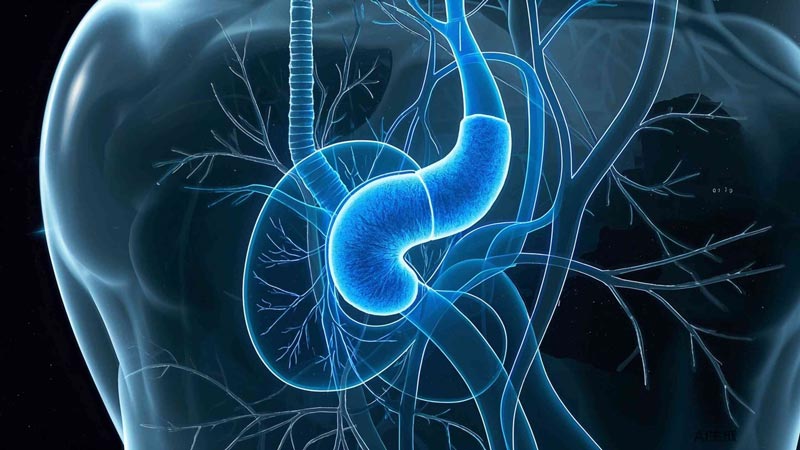The pancreas, a vital organ nestled deep within the abdominal cavity, silently performs the dual tasks of digesting food and regulating blood sugar. In today's modern lifestyle, maintaining its normal function is crucial for overall health, including mitigating potential health risks.
Research has found that long-term dietary choices can challenge the pancreas' metabolic regulation capabilities. Understanding the connection between diet and pancreatic function can help us make more informed choices and safeguard our health.

◆ The Impact of Dietary Patterns on Pancreatic Function
Our daily dietary choices can significantly impact the functioning of the pancreas. A long-term preference for the following types of food or beverages can make it more difficult for the pancreas to maintain metabolic balance:
1. Excessive intake of fried foods:
Foods such as fried chicken, French fries, and dough sticks are often high in fat and calories. Frequent consumption can lead to calorie excess, making weight management more difficult. Increased body fat levels can interfere with normal glucose metabolism, placing a greater burden on the pancreas to regulate blood sugar.
2. Excessive consumption of high-fat snacks:
This includes some cream pastries, puffed foods, and excessive intake of high-fat nuts. Excessive fat intake not only affects blood lipids but can also reduce the body's response to insulin, indirectly increasing the likelihood of blood sugar fluctuations and placing additional strain on pancreatic function.
3. Chronic dependence on high-sugar sweets:
Such as candy, high-sugar chocolate, sweet cookies, and extremely high-sugar snacks. Continuously consuming large amounts of refined sugar prompts the pancreas to frequently secrete large amounts of insulin to respond to rising blood sugar levels. This constant, high-intensity activity is believed to be detrimental to the long-term stability of pancreatic cell function, especially for those whose glucose metabolism is already compromised.
4. Habitual consumption of sugary beverages:
Such as carbonated drinks, fruit juice drinks, and milk tea often contain large amounts of added sugar. Liquid sugar is absorbed quickly, causing a sharp increase in blood sugar levels within a short period of time, forcing a short-term surge in insulin secretion. Long-term, habitual consumption not only increases the metabolic burden but also continuously tests the pancreas's ability to adapt.

◆ A Rational Approach to Dietary Impacts
1. A Correlation Isn't a Consequence:
The aforementioned association between dietary patterns and pancreatic function refers to the fact that long-term, excessive, and unbalanced intake may increase the pancreas' workload or affect its regulatory efficiency. It doesn't mean that occasional exposure will directly cause problems. Overall health is influenced by multiple factors, including genetics, environment, and lifestyle.
2. The Key is "Moderation" and Overall Balance:
Moderate, occasional intake generally has limited impact. The real focus is on whether these foods are a major component of your daily diet.
3. The Comprehensive Impact of Lifestyle:
In addition to diet, smoking, excessive alcohol consumption, lack of physical activity, and poor weight management are all significant factors that affect metabolic health. Maintaining pancreatic function and overall health requires comprehensive health management, which is also a crucial foundation for cancer prevention and treatment.

◆ Daily Strategies to Support Pancreatic Health and Overall Vitality
1. Build a Balanced Diet:
Ensure your daily diet includes a rich source of fruits and vegetables (which provide antioxidants and fiber to support the body's natural defenses), a moderate amount of whole grains (which provide stable energy), and high-quality protein sources such as fish, poultry, and soy products.
2. Optimize Food Choices:
Consciously reduce the frequency and proportion of fried foods, high-fat snacks, high-sugar desserts, and sugary beverages in your daily diet, viewing them as choices to be controlled rather than routine.
3. Maintain a Healthy Weight:
Maintaining a healthy weight through proper diet and regular physical activity is key to maintaining metabolic health and reducing various health risks.
4. Avoid Tobacco and Limit Alcohol:
Tobacco smoke and excessive alcohol consumption have been shown to have a clear negative impact on pancreatic function and overall metabolic health and are factors to avoid as part of a healthy lifestyle.

5. Regular Physical Activity:
Maintaining moderate exercise helps maintain a healthy weight and improves insulin sensitivity, reducing the burden on the pancreas.
6. Pay attention to body signals and address them promptly:
For those with a family history of pancreatic cancer or other health risk factors, regular monitoring of blood sugar and lipid levels is essential for health management. If you experience persistent upper abdominal pain, indigestion, yellowing of the skin or whites of the eyes, or unexplained significant weight loss, you should seek professional medical advice promptly.
7. Maintain a regular eating rhythm:
Avoiding overeating and maintaining relatively regular mealtimes will help stabilize the pancreas' workload.
Conclusion:
The health of the pancreas is closely linked to its metabolic regulation function and is a crucial component of overall health.
By focusing on your daily diet, reducing the proportion of foods that may increase its workload, prioritizing natural and balanced sources of nutrition, and combining this with an active lifestyle (quitting smoking, limiting alcohol, exercising moderately, and managing your weight), you can effectively support the function of this important organ, promote long-term metabolic health, and maintain overall vitality and defenses.
Awareness begins with action, and choosing a balanced diet is the key to long-term health. Caring for the pancreas also lays a solid foundation for a healthy future.

%20--%3e%3c!DOCTYPE%20svg%20PUBLIC%20'-//W3C//DTD%20SVG%201.1//EN'%20'http://www.w3.org/Graphics/SVG/1.1/DTD/svg11.dtd'%3e%3csvg%20version='1.1'%20id='图层_1'%20xmlns='http://www.w3.org/2000/svg'%20xmlns:xlink='http://www.w3.org/1999/xlink'%20x='0px'%20y='0px'%20width='256px'%20height='256px'%20viewBox='0%200%20256%20256'%20enable-background='new%200%200%20256%20256'%20xml:space='preserve'%3e%3cpath%20fill='%23FFFFFF'%20d='M194.597,24.009h35.292l-77.094,88.082l90.697,119.881h-71.021l-55.607-72.668L53.229,232.01H17.92%20l82.469-94.227L13.349,24.009h72.813l50.286,66.45l58.148-66.469V24.009z%20M182.217,210.889h19.566L75.538,44.014H54.583%20L182.217,210.889z'/%3e%3c/svg%3e)




